Letcombe Bassett, also once known as Upper Letcombe, is a village and civil parish two miles south-west of Wantage, on the north side of the Berkshire Downs. It lay in Berkshire for centuries, before the boundary changes of 1974 reallocated it to Oxfordshire.
With its sister villages Letcombe Regis and East and West Challow, the three once formed a single estate, from which Letcombe Bassett had been separated by the time of the Domesday survey.
“Ledecumbe”, comes from the “lede in the combe” or “the brook in the valley”, referring to the Letcombe Brook, whose source is in Letcombe Bassett. “Bassett” comes from Richard Bassett, who held the manor in 1158.
The Ridgeway runs along the top of the downs above the village.
Size
1,662 acres (673 hectares)
Population
292 in 1851; 152 in 2011
Hundred
Kintbury Eagle
Poor Law union
Wantage
Registration district
Wantage
Present-day local authority
Vale of the White Horse, Oxfordshire
Grid reference
SU 37 85
Adjoining parishes in 1851
Childrey, East Garston, Fawley, Lambourn, Letcombe Regis, East Challow
Genealogical resources
See Berks FHS Books for coverage of this parish in the society’s range of CDs.
See also Berkshire Record Office holdings.
Links
A 1948 Pathé News feature about the village, alleged that it was under (the dubious and wholly unexplained) threat of “abolition”. Various local scenes are shown.
Published history
- Frederick T Barrett. Letcombe Bassett then and now (1966)
- Frederick T Barrett Letcombe Bassett some records of an ancient Berkshire village (Alfred Press, 1950)
Anglican church and parochial organisation
Letcombe Bassett is a rectory in the diocese of Oxford.
The church of St Michael and All Angels has an eleventh-century nave and a thirteenth-century chancel, the rest being those seventeenth-century features which survived a Victorian restoration of 1862. It is now within the Ridgeway benefice.
Other churches
A Wesleyan Methodist chapel was recorded in 1868 and in 1924.
Schools
No schoolteacher was recorded in the 1851 census. A National school existed in 1872. The former school is now the village hall.
Pubs
Two beer sellers were recorded in 1851 census, but no innkeeper or publican. A house called the Yew Tree is said to be the former village pub.
Other local history
Among the older houses, Whites Farmhouse is Norman, and the Old Rectory dates back to the seventeenth century, with a large thatched barn going back to around 1400.
Jonathan Swift stayed for three months in the rectory in June 1714. Under a mulberry tree in the garden he wrote Free thoughts on the present state of affairs. Alexander Pope visited him here.
Letcombe Bassett is the village of Cresscombe in Thomas Hardy’s novel Jude the obscure. Arabella’s Cottage, where Jude met Arabella, still stands.
Watercress is grown commercially in the village. There are also strong connections with the breeding and training of racehorses.
